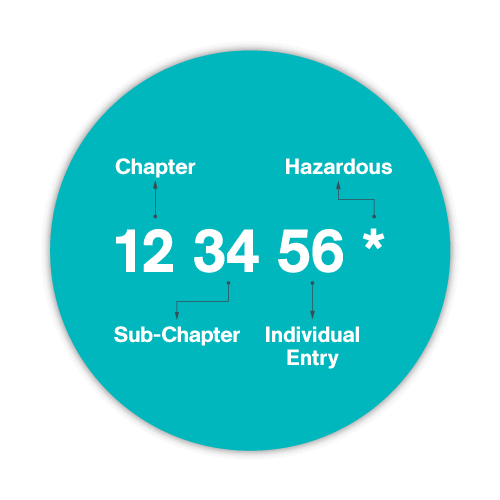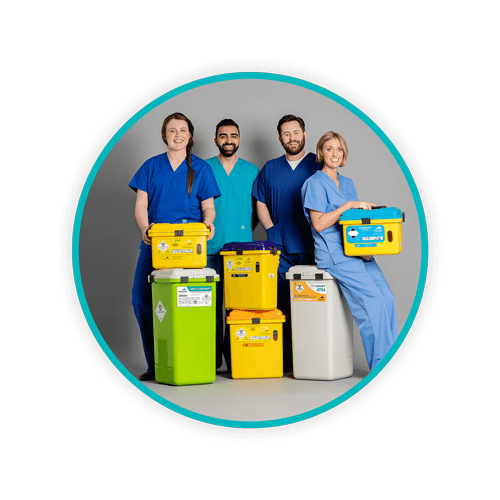What Are the EWC Codes for Healthcare Waste?
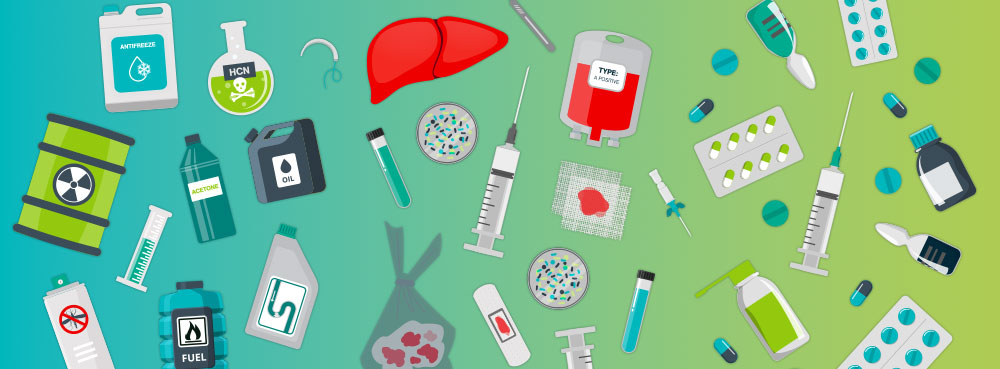
Postcodes, QR codes, dress codes… even when we don’t fully understand them, codes are an expected part of our daily lives that we accept without question. But what about EWC codes?
There’s more at stake with understanding EWC codes than arriving at the wrong location or looking out of place at a formal function – it’s the difference between safe, sustainable and compliant waste management, and dangerous, environmentally harmful, non-conforming waste disposal.
Read on to learn all you need to know about the EWC codes for healthcare waste so you can correctly classify waste, follow best practices, and ensure both safety and compliance on your route to Net Zero.
TOPICS WE WILL COVER:
2 / What Is the European Waste Catalogue?
3 / Why Do You Need to Use EWC Codes?
4 / How to Use EWC Codes in Healthcare Settings
5 / EWC Code Definitions for Healthcare Waste
6 / How EWC Codes Impact Waste Treatment Pathways
7 / Need Help Classifying Your Healthcare Waste?
Want to skip straight to the EWC codes for healthcare waste? Click here.
What Is an EWC Code?
An EWC code is a six-digit code used to identify waste as listed in the European Waste Catalogue (EWC). These codes are sometimes also referred to as LoW (List of Waste) codes or Waste Classification Codes.
EWC codes are formatted as three pairs of numbers used to identify and classify waste types into appropriate categories determined by how the waste has been produced. The three pairs of numbers denote the chapter, subchapter, and individual entry within the European Waste Catalogue.
- The first two digits = the chapter
- The next two digits = the subchapter
- The final two digits = the waste type
For hazardous waste, an asterisk* is added to the end of the code.
It’s a legal requirement that any waste produced by your business and sent for recycling or disposal is classified using the correct EWC code.
What Is the European Waste Catalogue?
Imagine an extensive collection of various waste materials that you can browse through and purchase to your heart’s content, perhaps even with next-day delivery options! Sadly, it’s not that type of catalogue.
Slightly less (dare we say it…) fun, the European Waste Catalogue is a list used to index and categorise waste descriptions in a standardised format. The catalogue comprises around 650 different codes divided across 20 chapters numbered 01 to 20.
The main chapters are usually defined by industry, but in some cases are based on materials and processes. Each chapter is further subdivided into categories. The individual waste within each chapter is assigned a six-figure code to classify exactly what type of waste it is.
Why Do You Need to Use EWC Codes?
Knowing which waste goes into which bin is just the beginning of the disposal process. The primary purpose of EWC codes is to prevent harm to people and the environment. They’re used to classify waste, which helps waste carriers ensure the correct pathway is followed depending on the type of waste and that it’s handled correctly.
EWC codes are used when completing:
- Waste data returns
- Waste transfer notes
- Hazardous waste consignment notes
Using EWC codes to describe waste is a legal requirement of your Duty of Care, as stipulated by the Environmental Protection Act 1990. This requires waste producers to do everything within their power to ensure waste is described in a way that permits its safe handling and management.
Classifying your waste will also help you:
- Effectively record and monitor the waste you’re producing.
- Ensure waste is being segregated into the right waste streams.
- Correctly label your waste as hazardous or non-hazardous.
- Choose the most suitable and sustainable treatment pathway.
How to Use EWC Codes in Healthcare Settings
Are you still with us? Great! Now for the exciting part… how do you find the correct six-digit code from a choice of 650 different codes divided across 20 chapters? Buckle up!
Let’s break it down into steps:
Step 1: Identify the Waste at the Point of Generation
This is always the best place to start. Start by determining what the waste is and how it was produced. EWC codes are structured based on the activity that generated the waste, not just its appearance.
Step 2: Refer to Chapter 18 of the European Waste Catalogue
Chapter 18 is all about healthcare, and for the majority of healthcare waste, this is where you’ll find the EWC codes you need – just be mindful to keep your humans and animals apart when it comes to waste classification:
- 18 01: Human healthcare waste
- 18 02: Animal healthcare and research waste
These categories are then further subdivided with the last two digits to identify the specific waste streams, which we’ll look at in more detail shortly.
Step 3: Determine if the Waste Is Hazardous or Non-Hazardous
This distinction is crucial. Hazardous waste poses risks to people at every stage of the waste journey, and also to the environment. You can use the Health Technical Memorandum (HTM) 07-01 as your guide to assess the hazardous nature of your waste, or seek assistance from your waste contractor.
Step 4: Record and Communicate the EWC Code
Once assigned, the appropriate EWC code must be recorded on all relevant waste documentation, including internal logs, waste transfer notes and consignment notes for hazardous waste.
Step 5: Stay Up to Date
Regulations change and evolve over time, and as a result, EWC codes may be updated in line with legislative changes or evolving practices. Regular training and guidance will ensure your team stays compliant and confident when managing healthcare waste.
EWC Code Definitions for Healthcare Waste
Human-Related Healthcare Waste EWC Codes
What is EWC code 18 01? It categorises wastes from natal care, diagnosis, treatment or prevention of disease in humans. The human-related healthcare waste EWC codes are:
- 18 01 01: Sharps (except 18 01 03)
- 18 01 02: Body parts and organs including blood bags and blood preserves (except 18 01 03)
- 18 01 03*: Wastes whose collection and disposal is subject to special requirements in order to prevent infection
- 18 01 04: Wastes whose collection and disposal is not subject to special requirements in order to prevent infection
- 18 01 06*: Chemicals consisting of or containing hazardous substances
- 18 01 07: Chemicals other than those mentioned in 18 01 06
- 18 01 08*: Cytotoxic and cytostatic medicines
- 18 01 09: Medicines other than those mentioned in 18 01 08
- 18 01 10*: Amalgam waste from dental care
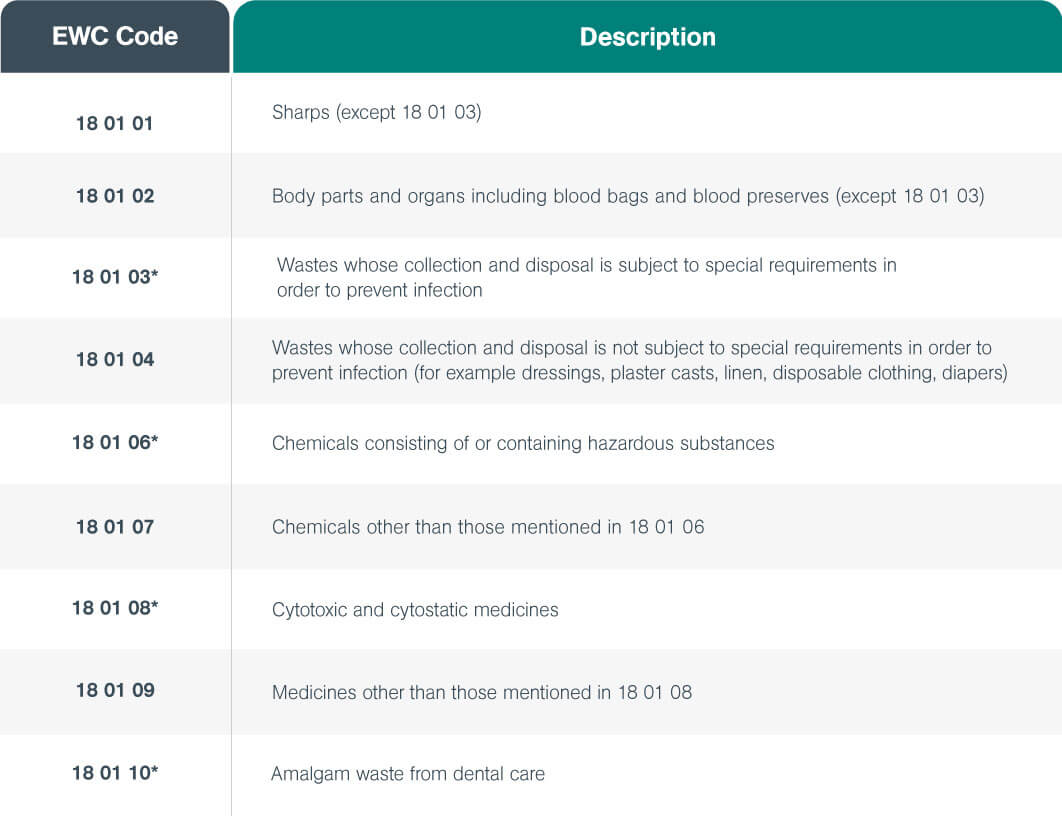
Animal-Related Healthcare Waste EWC Codes
What is EWC code 18 02? It categorises wastes from research, diagnosis, treatment or prevention of disease involving animals. The animal-related healthcare waste EWC codes are:
- 18 02 01: Sharps (except 18 02 02)
- 18 02 02*: Wastes whose collection and disposal is subject to special requirements in order to prevent infection
- 18 02 03: Wastes whose collection and disposal is not subject to special requirements in order to prevent infection
- 18 02 05*: Chemicals consisting of or containing hazardous substances
- 18 02 06: Chemicals other than those mentioned in 18 02 05
- 18 02 07*: Cytotoxic and cytostatic medicines
- 18 02 08: Medicines other than those mentioned in 18 02 07
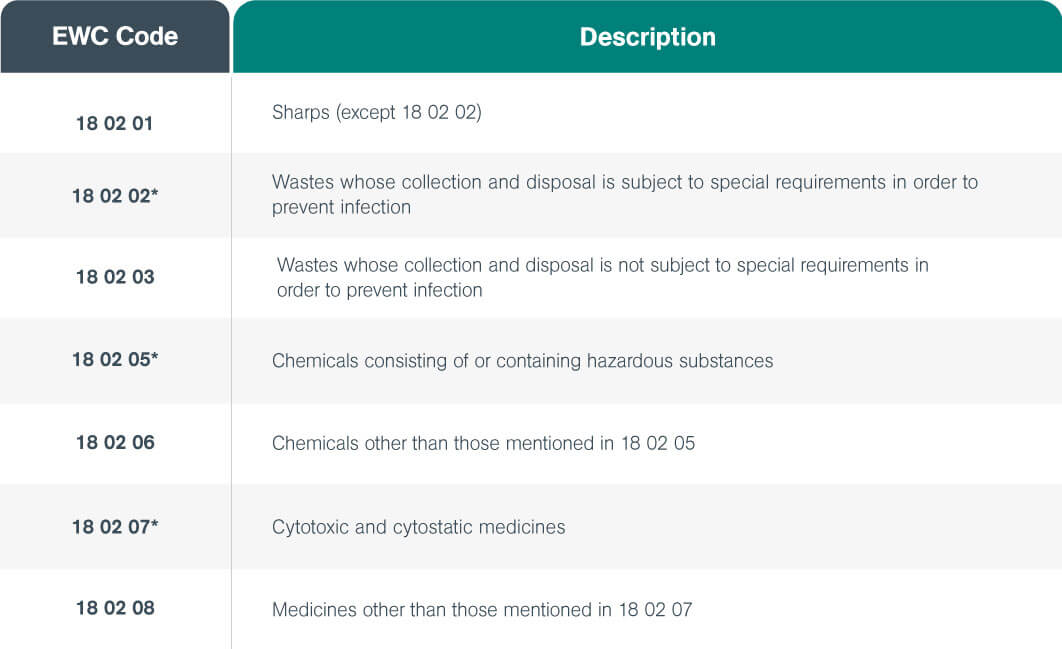
How EWC Codes Impact Waste Treatment Pathways
The EWC code assigned to each waste type not only classifies the waste for safe handling, but also directly determines how it must be treated. Whether waste needs to be incinerated, autoclaved, or processed via alternative methods, such as energy-from-waste, depends on its classification.
Misclassification often leads to overtreatment, resulting in increased disposal costs and carbon emissions. In contrast, using the correct code ensures that waste follows the appropriate treatment route, which is essential for legal compliance, environmental responsibility, and cost efficiency.
Need Help Classifying Your Healthcare Waste?
Now that you know the EWC codes for healthcare waste and how to use them, you’re all set for waste compliance… well, almost. It may still feel a little daunting, and you might have some questions or feel in need of training.
Whether you’re looking for clinical waste disposal services or just some guidance and support with managing your waste streams, our experts are here to help.
With over 24+ years of experience working within the four walls of healthcare organisations across the UK, we’re experts at upskilling healthcare workers with education and training that make waste management best practices second nature.
Let's Talk!
Your time is valuable, and we don’t want to play hard to get. You can either phone us directly on the details listed on our contact page, or feel free to fill out this short form and one of our team members will get back to you as quickly as possible.
